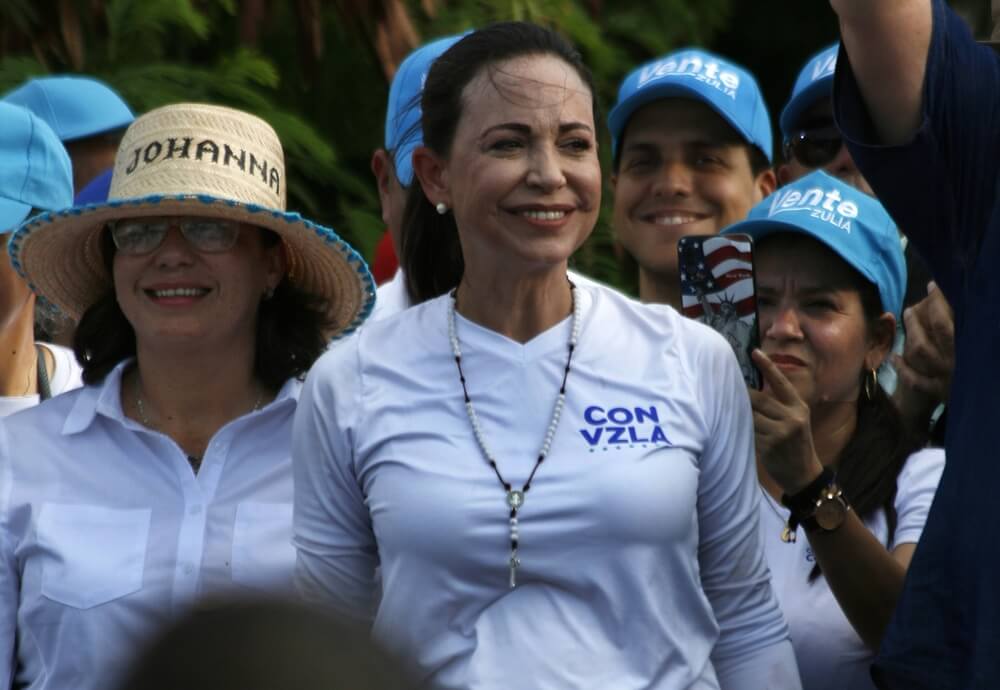Venezuela is facing an almost certain political shift, as well as the end of the 25-year rule of the left-wing populists, first Hugo Chávez and then the current president, Nicolás Maduro, who have devastated the country.
However, the widespread desire for change evident in public opinion polls is not enough to assume that Venezuela will experience a smooth change of government in Sunday's presidential elections.
Even if opposition candidate Edmundo González wins convincingly, Maduro's heavy-handed ruling system can reshape the election results, and few can rule out a scenario in which Maduro will attempt to retain power by force.
In an effort to extend his 11-year rule after Sunday, Maduro has done all he can with a tightly controlled administration to prevent competition that could threaten him.
In response to international pressure, Maduro's government signed the Barbados Agreement with the opposition last October, aiming to establish fair electoral conditions and foster a more democratic atmosphere prior to the crucial presidential elections.
However, since then, the Venezuelan head of state has very convincingly violated the agreement. The Supreme Court's decision in January to ban Maria Corina Machado's candidacy, which received support from the united opposition, was the highlight.
Counter-effects of the pressure on the opposition
The charismatic Ms Machado, a conservative politician, will not be on the ballot paper on Sunday but is regarded as the biggest threat to Maduro's rule that could be in its final days.
Maduro's move to exclude her from the electoral race by ruling of a controlled court was entirely to be expected for autocratic regimes, but situations like this often prove to be the most dangerous.
Pre-election polls in July gave Mr Gonzalez a huge lead over the current President Maduro
Mrs Machado is very active in the election campaign all over the country, talking about big changes at spontaneous rallies where citizens welcome her as a saviour.
Together with the opposition alliance Democratic Unitary Platform, she has supported the candidacy of former diplomat Edmundo González and is campaigning with him for major changes in the country to curb corruption and revitalise the almost completely failed economy.
Pre-election polls in July gave Mr Gonzalez a huge lead over the current President Maduro and predicted an opposition victory with up to 60% or 70% of the vote.
Electoral manipulation
Given the massive efforts Maduro and his state apparatus are making to avoid defeat, few people think the task is complete.
In recent months, he has carried out numerous manipulations to create confusion among voters, such as changing the names of thousands of schools across the country where voting normally takes place.
Maduro also expects the opposition bloc to be unable to install controllers at remote polling stations, providing an opportunity to steal votes.
The government has only allowed a handful (approximately 70,000) to vote in the Sunday elections at embassies and consulates
Furthermore, the government in Caracas has only allowed a handful (approximately 70,000) to vote in the Sunday elections at embassies and consulates.
During Maduro's rule, nearly 8 million people have left Venezuela due to the permanent economic crisis and state repression, including more than 4 million voters, or one-fifth of the 21 million voters.
This blockade of otherwise permitted voting abroad is part of Maduro's strategy to keep voter turnout as low as possible on Sunday. He hopes that Venezuelans' long-standing political apathy will now play an important role, and that the majority of voters will stay at home.
On the other hand, his key supporters, namely several million workers in the public sector and state-controlled companies, will go to the polls in a disciplined manner and support his new six-year mandate.
Pressure from abroad
The pre-election polls also reveal apathy and pessimism regarding a change of government. Despite the high percentage of support for opposition candidate Gonzalez, almost half of citizens believe that Maduro will either win the elections or will not allow a change of government if his opponent wins.
After 11 years of his repressive rule, preceded by similar years of the Chávez regime, Venezuelans are more than reluctant to believe that there will be a change, even if a united opposition candidate wins.
 Opposition leaders have expressed their willingness to negotiate the terms of the transition - Maria Corina Machado
Opposition leaders have expressed their willingness to negotiate the terms of the transition - Maria Corina Machado
“If the government fails to dampen opposition participation and Maduro loses the election handily, the regime would be hard-pressed to simply disregard the people’s verdict by employing lawfare to disqualify the victorious opposition and deploying force against any subsequent protests to remain in power,” is one of the post-election scenarios that Mark Feierstein of the United States Institute of Peace warns against.
This would certainly be the riskiest step for the Venezuelan heavy-handed ruler, but at the same time, it is one of the few remaining options that politicians of this profile often resort to.
Opposition leaders have expressed their willingness to negotiate the terms of the transition, including guarantees for Maduro's United Socialist Party of Venezuela (PSUV) to remain in the country's political life if Maduro resists a peaceful transfer of power.
If the situation in Venezuela develops in this direction after Sunday's elections, international pressure will be decisive for the country's stability and respect for the democratic will of its citizens. Given the accusations of drug trafficking against Maduro and several other senior officials, the US will play a crucial role.
However, equally important will be US diplomatic influence on regional leaders who maintain relations with Maduro in order to put decisive pressure on him to make a peaceful transition.